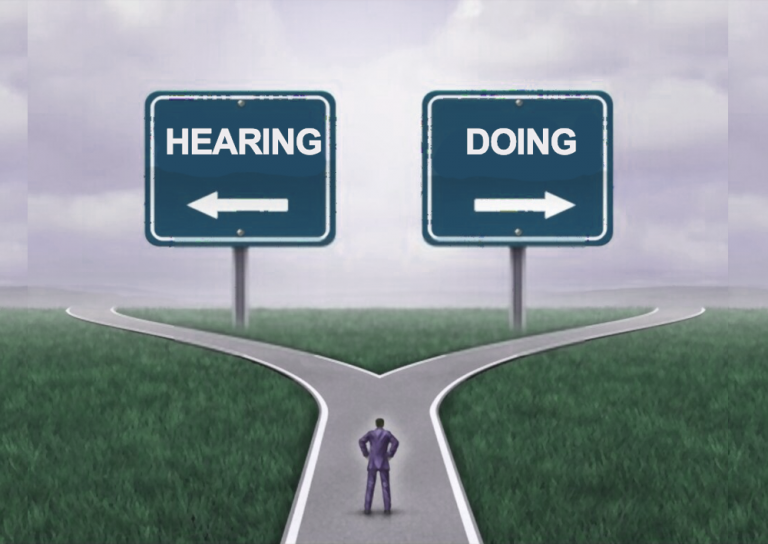Accept Rebuke, It’s A Blessing
One day I noticed a middle-aged lady correcting a young man. The young man should have seen that the lady simply wanted him to recognise the issues she presented, but he had an excuse for every point highlighted. Furthermore, he refused to take any responsibility for the ongoing issues and blamed his environment and other people. Well, it’s only natural to feel like you must defend yourself when corrected. We don’t like to be wrong and then corrected! It takes humility to accept where you failed, acknowledge it, and strive to improve things.
We all have sinned against God. We all make choices that are contrary to God’s best for us. Nonetheless, acknowledging our wrong is the right step to take. Instead, we often try to rationalize our sins in our heads to the point that we confidently say, ‘I have obeyed the voice of the Lord’ just like Saul did in 1 Samuel 15:17-21. We make excuses and blame people and situations for how we fall short.
In the stated text, prophet Samuel makes it blatantly clear to Saul that he did not follow the instructions given to him by the Lord. The Lord’s instructions to Saul were simple: ‘Go and completely destroy those wicked people, the Amalekites; wage war against them until you have wiped them out’ (1Samuel 15:17). Instead, Saul ‘brought back Agag their king. The soldiers took sheep and cattle from the plunder, the best of what was devoted to God, in order to sacrifice them to the Lord your God at Gilgal’ and claims to have ‘obeyed the voice of the Lord’ (1Samuel 15:20-21). He destroyed what he wanted to destroy and kept what he wanted to keep. But it didn’t end there. Saul had an excuse for his failures. He was quick to defend himself.
In verse 24 – 25 of the text, Saul finally admits that he has sinned. Saul explains that he did not fully obey God because ‘I was afraid of the men and so I gave in to them. Now I beg you, forgive my sin and come back with me, so that I may worship the Lord.’ Unfortunately, Saul still cared way too much about how others perceived him. Looking respectable in front of others was more important than getting right with God. The inability to quickly take ownership for what you did wrong and the strong desire for others to think more highly of you generally walk hand in hand. Saul attempts to deflect the blame stating that he ‘was afraid of the men’ and did what they asked, saying that they gave him no choice but to disobey God. This shockingly immature answer reveals his people-pleasing nature. The desire to be perceived well by everyone, even when it is contrary to what God instructed, will only lead to destruction. As proverbs 29:25 rightly states: The fear of man lays a snare, but whoever trusts in the Lord is safe. To make matters worse, we see more drama play out as Samuel clarifies, ‘The Lord has torn the kingdom of Israel from you today and has given it to one of your neighbours—to one better than you.” (28). At this stage, I would expect Saul to break down and humbly ask for forgiveness now that the gravity of his sin has come to light. But no, that’s not what we see. Instead, Saul’s pride steps in once again. “I have sinned. But please honour me before the elders of my people and before Israel; come back with me, so that I may worship the Lord your God.” (30)
So, at least at this stage, Saul has finally taken ownership of his wrong. It took a while! But his pride was insatiable. Even at this stage, Saul still wanted the honour. He wanted the elders of Israel to view him as something he was not. But how easy is it for us to fall into the same traps Saul fell into? Why do we feel the need to engage in a full-blown debate with the person correcting us before we see our wrong? And when we admit or see our wrong, do we still want others to view us as what we are not? Why do we blame the circumstances and environmental factors that contributed to our bad choices?
How can you tell your level of humility? By checking your response or reaction when corrected. If you are always quick to defend yourself or make excuses, you may need to examine yourself. It’s challenging to get along with people who are never wrong and blame everyone else for whatever may have happened! A lack of self-awareness can destroy you, regardless of whether you are a Christian or not. Now, self-awareness is something everyone has access to. However, your ability to be self-aware is influenced by many factors. These include your environment, personality, and how you were brought up. Christians have much more than just access to self-awareness. We have the Holy Spirit to bring things to light. But when sin issues are brought to light, humility is required to listen to the rebuke of God’s Spirit. There is freedom in taking ownership when you sin rather than defending and deflecting the blame.
Saul did not end well. His last days were marked with darkness, destruction and suicide (1 Samuel 31:4-5). Humility goes a long way. Humility protects you from unnecessary self-inflicted problems. If all you do is blame others for what went wrong in the past, you still have a lot of growing to do. Like Saul, you can attempt to paint situations so that everything looks more favourable towards you. But that won’t end well. Whatever you refuse to learn during a particular season in your life will face you in the future. Instead of letting your life become a point of correction, it is preferable to grow through correction.
Proverbs 16:18 stands, ‘Pride goes before destruction, and a haughty spirit before a fall’.
People-pleasing, pride and an inability to acknowledge when you do wrong always result in one thing- destruction.
Turn at my rebuke; Surely I will pour out my spirit on you; I will make my words known to you. Proverbs 1:23,NKJV
Finally, there’s always a blessing attached to accepting rebuke and repenting. The blessing comes from the transformation of your heart, attitude and character. May the Lord help us to see corrections as an opportunity to improve and draw closer to God. Amen
Photo credit: ©istockphoto/Imagesines






